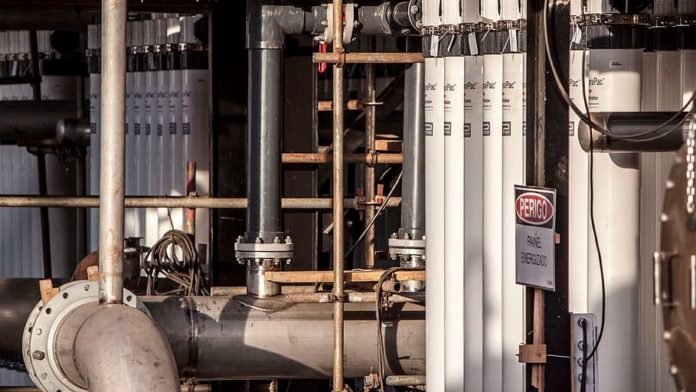Industrial wastewater is often heavily polluted, difficult to treat, and costs North American businesses an estimated $30 billion annually. There is also a growing body of evidence that industrial wastewater is contributing to antibiotic resistance.
Axine Water Technologies is pioneering a new standard for industrial wastewater treatment systems. Using advanced electrochemical technology, Axine is able to tackle difficult-to-treat organic compounds.
The technology helps companies reduce their waste and CO2 emissions, save money, reduce risk, and increase operational efficiency. To date, Axine has developed partnerships with companies from a variety of industries including oil and gas, electronics, and a ‘leading’ pharmaceutical manufacturer in the US.
“Electrochemical treatment has been out there for a while, but Axine has figured out a way to do it a lot cheaper,” said David Kujawski from Refinery Water Engineering & Associates Inc to Business in Vancouver.
“From what we’ve seen so far, it looks really promising to solve some very painful issues that exist with refineries today, especially in the United States.”
Axine was one of 12 Canadian companies listed in the top 100 clean technology companies worldwide last year by the Cleantech Group. They are partnered with the venture capital firm Chrysalix and have received $2 million in government funding through Sustainable Technology Development Canada.
The Axine alternative
In the world of oil and gas, water is a key part of the extraction process. The industry is often said to process more water than oil.
For example, in oil sands operations, water is used to separate the extracted oil into sand and bitumen. Next, the bitumen and sand are separated during the steam-assisted gravity drainage process. The resulting wastewater is heavily contaminated with organic compounds and approximately 10 percent of it can never be cleaned up.
Conventional wastewater treatment uses biological processes involving bacteria that break down some of the toxic material, but it’s a time-consuming affair that also produces unwanted byproducts like sludge. Axine’s alternative uses electrolytic cells to create free radicals that react with the toxic compounds, causing them to disintegrate into water, nitrogen, CO2, and hydrogen.
The energy requirements are significantly lower than what is used for other electrochemical processes, and there are no sludgy byproducts. The method can also be applied in industrial wastewater treatment settings beyond extraction, such as oil refining, and in the pharmaceutical industries.
An important caveat is that Axine’s service doesn’t necessarily eliminate the need for conventional treatment, but it can expedite the process and reduce cost and waste when used as a pre-treatment.
“We’ve benchmarked our technology in terms of costs for a fairly wide variety of applications,” said co-founder Johnathan Rhone to BIV. “It typically benchmarks at between three and 10 times lower cost than incumbent technologies. So it’s highly disruptive in the market.”
https://youtu.be/EXOO5Z4h5to
Making headway with the pharma industry
In September 2019, Axine signed a multiyear contract with a leading pharmaceutical manufacturer in the US. The company’s existing solution was to truck its wastewater to a facility for incineration, but with Axine’s tech allowing them to safely discharge directly into sewage systems, they estimate reductions of 160,000 trucking kilometres and 3.6 million kg in waste incineration over the course of the contract.
Around the same period, Axine announced the successful completion of a program designed to test their technology against a range of active pharmaceutical ingredients (APIs) in wastewater. The APIs reportedly included antibiotics, antimicrobials, chemotherapy medicines, pain relievers, and other APIs typically found in pharmaceutical manufacturing wastewater streams.
“Our goal is to establish a new standard of care for treating APIs and other toxic organics in pharmaceutical wastewater to help eliminate APIs in manufacturing effluent, reduce environmental risks and achieve sustainability goals,” said Rhone to PR Newswire.
“These results demonstrate the versatility of our technology to meet the most stringent discharge requirements while operating on a diverse range of APIs,” added Rhone.








































